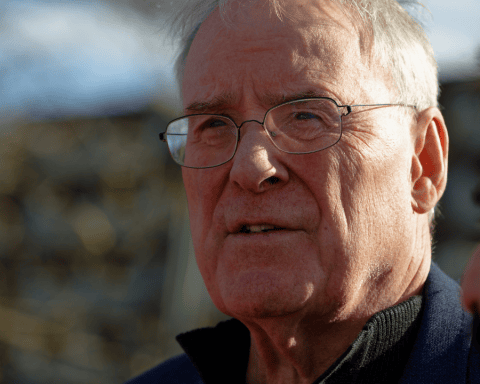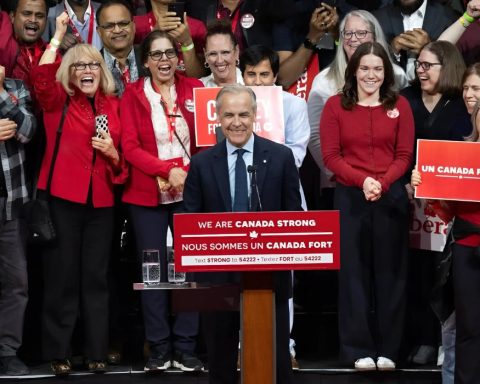If you’re interested in inequality, social justice and the future of democracy, then you should definitely read this book,” proclaims rock star economist Thomas Piketty in his introduction to Gabriel Zucman’s book The Hidden Wealth of Nations: The Scourge of Tax Havens.
Only 28 years old, the French-born Zucman, assistant professor of economics at University of California, Berkeley, has already made a name for himself as the most prominent voice in economics focused on tax havens. Back when Piketty was his PhD thesis advisor at the Paris School of Economics, he encouraged Zucman to begin looking into the connection between taxes and inequality.
Zucman’s major breakthrough came when examining a long-running discrepancy in global economic data: the fact that financial liabilities around the world add up to trillions of dollars more than the reported financial assets held by investors. Zucman found that this money was appearing as shares in mutual funds incorporated in tax havens. This allowed him to begin mapping out the world of offshore tax avoidance.
The concise and accessible book, published late last year, distills his research into a powerful denunciation of tax havens and their role in expanding income inequality. Estimates of personal offshore wealth used by Zucman remain on the conservative end of the spectrum because they don’t include non-financial assets like real estate, gold and art, but still bring home the point that tax havens siphon hundreds of billions of dollars away from government revenues each year.
CK contributor Richard Eskow recently caught up with Zucman to discuss the size and growth of tax havens, their impact on tax revenue and what can be done to curb their proliferation.
CK: Why are tax havens such a problem?
Zucman: Every country has the right to choose its own forms of taxation, to have low tax rates if they want to, but what tax havens do goes beyond this. They steal the tax revenue of other countries by making it easier for tax dodgers to evade their own tax obligations. They do this by cooperating very little with foreign tax authorities, by enabling multinational companies to artificially shift a huge amount of their profits or because they make it easy for money launderers to hide their profits and to conceal wealth. So that’s the problem, it’s an externality – like pollution.
CK: What brought you to studying tax havens in the first place?
Zucman: One main reason is that I’m interested in inequality. The way we measure inequality in economics is by looking mostly at tax-returns data and survey data. But of course when you look at tax data, you only capture the income or the wealth that people report and not the income that they don’t report – the income that evades taxes. So I wanted to have a sense of how much we are missing. How much are we underestimating inequality when we use tax data? So I started looking at, okay, can we have a sense of the amount of wealth that is in tax havens globally?
CK: The magnitude of wealth that is stored in offshore tax havens is starting to feel a bit like dark matter, distorting the physical universe. We don’t see it, but there’s a lot there.
Zucman: By my estimation, there is about $7.6 trillion (U.S.) held by rich individuals in offshore bank accounts across the world. This $7.6 trillion is equivalent to about 8 per cent of the world’s total household financial wealth, and that’s a global average. For Latin America, it’s more than 20 per cent. For Africa, it’s as much as 30 per cent. For Russia, up to 50 per cent. So for developing countries in general, a huge fraction of their financial wealth sits in tax havens. The implications both for the development of these countries and for the study of inequality are profound. From a revenue generation perspective, I estimate that this leads to almost $200 billion in annual losses to government revenues.
CK: You estimate personal offshore wealth in the U.S. sitting at 4 per cent, about $1.2 trillion. In Canada, a much smaller economy, this number sits at 9 per cent, about $300 billion.
Zucman: For the U.S., 4 per cent is a bit less than the global average, but the U.S. is also very exposed to and affected by the huge shifting of corporate profits. I’m not talking about individual wealth anymore; I’m talking about the profits of multinational firms like Google or Amazon. These firms shift their huge financial profits to tax havens, often legally, and this for the U.S. creates an additional tax revenue loss of about $130 billion per year.
CK: If Americans are hiding, on a personal level, 4 per cent of household income offshore, it’s likely that researchers are underestimating the magnitude of inequality in the U.S.

Zucman: There are many uncertainties about how wealth is distributed in the U.S. right now, for the simple reason that the available data on wealth is quite limited. There are no wealth stats. There are income stats, so you can get a sense of how income is distributed. There are registers of land and real estate that can be used to measure non-financial wealth, but there are no public registers of financial assets.
The best estimate we have is that the top 0.1 per cent of the wealth distribution in the U.S. owns about 22 per cent of total U.S. wealth today. It used to own 7 per cent of total U.S. wealth in the late 1970s. Now if you take into account tax havens, both the level and the increase of wealth in the very top shares of society would be even bigger, likely increasing to 23 or 24 per cent.
CK: Let’s talk about corporations. You write that the effective tax rate paid by U.S. corporations has been reduced by one-third since the late 1990s. To what extent do tax havens or the offshoring of tax revenue in general play into that steep reduction?
Zucman: Basically tax havens have played the main role. In the late ’80s and early ’90s, the effective corporate income tax rate in the U.S. was about 30 per cent. This falls below the federal statutory corporate tax rate by about 5 per cent. Today, the federal statutory rate has remained the same, but the effective rate paid by corporations in the U.S. has declined down to 20 per cent. So that’s indeed a decline of about 10 per cent. Now the bulk of this decline – maybe 6 or 7 per cent – owes to the growing shifting of profits by U.S. firms to zero-tax countries like Bermuda, so growing artificial profit shifting.
There’s one simple way to see this: ask U.S. firms to disclose the geographical location of their profits. What you see in the aggregate data is that 55 per cent of all the foreign profits of U.S. firms are made in a handful of tax havens like Bermuda or the Cayman Islands, where the effective tax rate paid by U.S. firms is about 2-3 per cent.
CK: What measures should be taken to combat this problem of hidden personal wealth?
Zucman: There are a number of potential remedies. First of all I’d like to say that there’s been a lot of progress in recent years in better fighting offshore personal tax evasion by rich individuals, namely the Foreign Account Tax Compliance Act in the U.S. It involves an automatic exchange of banking information between tax-haven financial institutions and the IRS.
This is big progress. Ten years ago, if you’d asked any tax expert about whether this is doable, whether one day there would be an automatic exchange of banking information, they would have dismissed the idea as too idealistic. It shows that significant reforms are possible, forms of international cooperation that are often dismissed as utopian can indeed materialize in relatively short periods of time.
At the same time, much more remains to be done. I would say that the main thing, in my view, would be to create a register or registries of financial assets in the same way that we have registers of real estate and land. These registers have existed for a long time in many countries, but they only capture the ownership of houses and land. They don’t include any information about who owns bonds and mutual fund shares and so on. What’s important to understand is that financial registers already exist today in many countries, but are only managed and used by private financial institutions. This information is only used for securities settlement; it’s not used for enforcing taxes, statistical purposes or even cracking down on the financing of terrorism.
What I think would be doable and important would be to transfer the ownership of this data to public authorities and to use this vast amount of information for the public good. Not only for the securities market and the well-functioning of these markets, which is important, but also for public goods like transparency, compiling good statistics on the distribution of wealth, monitoring financial stability and fighting tax evasion.
CK: And this intersects nicely with Piketty’s suggestions for the overall tracking of global wealth as well.
Zucman: It does. Piketty’s proposal is to have wealth taxes and ultimately a global wealth tax, but taxes are always more than taxes. They create information. A wealth tax would create a lot of information on the distribution of wealth so that we can have an informed debate about whether there’s too much inequality and how tax policy might affect that. Our proposals are very complementary because it’s hard to have a wealth tax if you can’t measure wealth in the first place, if you don’t have a recording system. We have a property tax system, for example, but the way they work is that we have registers that tally up all the real estate that exists in the country, and so on. To make a wealth tax work, you need to have the requisite information available.
This is an edited and condensed version of an interview conducted by Richard Eskow for his show The Zero Hour.





